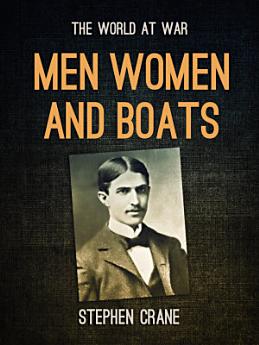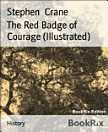Men Women and Boats
Nov 2018 · Otbebookpublishing
Ebook
136
Pages
family_home
Eligible
info
reportRatings and reviews aren’t verified Learn More
About this ebook
Excerpt: "A Tale intended to be after the fact. Being the experience of four men from the sunk steamer "Commodore". None of them knew the color of the sky. Their eyes glanced level, and were fastened upon the waves that swept toward them. These waves were of the hue of slate, save for the tops, which were of foaming white, and all of the men knew the colors of the sea. The horizon narrowed and widened, and dipped and rose, and at all times its edge was jagged with waves that seemed thrust up in points like rocks. Many a man ought to have a bath-tub larger than the boat which here rode upon the sea. These waves were most wrongfully and barbarously abrupt and tall, and each froth-top was a problem in small-boat navigation."
About the author
Stephen Crane, born on November 1, 1871, in Newark, New Jersey, was a pioneering American novelist, poet, and journalist whose work left an indelible mark on literature. Best known for his novel "The Red Badge of Courage," Crane's realistic portrayal of war and psychological depth revolutionized the genre, earning him a place among the most influential writers of his time.Crane's short life was marked by a series of adventures and controversies that would intrigue any modern reader. He worked as a journalist and war correspondent, covering conflicts such as the Greco-Turkish War and the Spanish-American War. His firsthand experiences in these tumultuous environments infused his writing with a raw authenticity that captivated audiences.Despite his literary success, Crane's life was fraught with scandal. His relationship with Cora Taylor, a brothel owner, and their unconventional lifestyle raised many eyebrows in conservative circles. Crane's fearless exploration of taboo subjects, such as prostitution and poverty, challenged societal norms and pushed the boundaries of acceptable literature.Crane's influence extended to contemporary writers like Ernest Hemingway and Joseph Conrad, who admired his concise, vivid prose and unflinching realism. His innovative narrative techniques and focus on the human psyche paved the way for modernist literature, making him a forerunner of the movement.Stephen Crane's legacy endures not only through his groundbreaking works but also through his daring life, which embodied the spirit of artistic rebellion and relentless pursuit of truth. His contributions continue to resonate, inspiring new generations to explore the complexities of the human condition.
Rate this ebook
Tell us what you think.
Reading information
Smartphones and tablets
Install the Google Play Books app for Android and iPad/iPhone. It syncs automatically with your account and allows you to read online or offline wherever you are.
Laptops and computers
You can listen to audiobooks purchased on Google Play using your computer's web browser.
eReaders and other devices
To read on e-ink devices like Kobo eReaders, you'll need to download a file and transfer it to your device. Follow the detailed Help Center instructions to transfer the files to supported eReaders.








